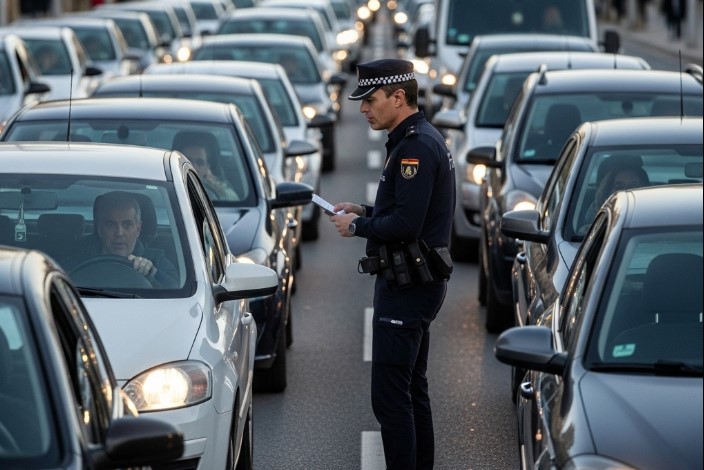The Spanish government under Pedro Sánchez is preparing a new decree that will bring drastic changes for drivers and municipalities with over 50,000 inhabitants. The legislative proposal not only mandates the establishment of environmental zones but also includes significant fines for drivers traveling alone in their vehicles. This measure represents a further tightening of urban mobility regulations and aims to curb the use of private vehicles, especially for individual transport.
Mandatory Environmental Zones and Financial Sanctions for Municipalities
The draft decree mandates the establishment of environmental zones in all municipalities with more than 50,000 inhabitants. Municipalities that defy this order or fail to consistently punish infringements will face substantial financial penalties. The government also intends to link access to European funding, such as Next Generation funds and public transport subsidies, to compliance with these requirements. In plain terms: no sanctions, no funds.
Resistance and Implementation Problems
Despite the obligation to establish environmental zones in all medium and large cities as enshrined in the 2021 Climate Change Law, after more than two years, only about a third of the affected municipalities have actually implemented these zones. A dozen cities have openly positioned themselves as “rebellious,” while many others have taken symbolic measures, such as delimiting areas without actually imposing fines.
Impact on the Population and Criticism from Abroad
The environmental zones restrict traffic in central urban areas based on the environmental badge issued by the Directorate-General for Traffic (DGT). Households with low incomes, who often rely on older and more polluting vehicles, are particularly affected. Although Brussels does not explicitly demand such restrictions – merely announcing regular air quality monitoring from 2027 – the Spanish government is pushing for a more radical application of the model. This contrasts with countries like France, where parliament recently voted to abolish environmental zones after negative impacts on vulnerable populations were identified.
Fines as a Revenue Source and Controversial Solo Driver Regulation
Cities like Madrid and Barcelona have already fully implemented the systems and have significantly increased their fine revenues in recent months. This financial success motivates the central government to accelerate nationwide implementation. One of the most controversial innovations of the decree is the planned punishment of solo drivers, an idea that DGT Director Pere Navarro had already voiced previously. The aim is to curb the individual use of cars as a daily means of transport and promote public transport and carpooling.




